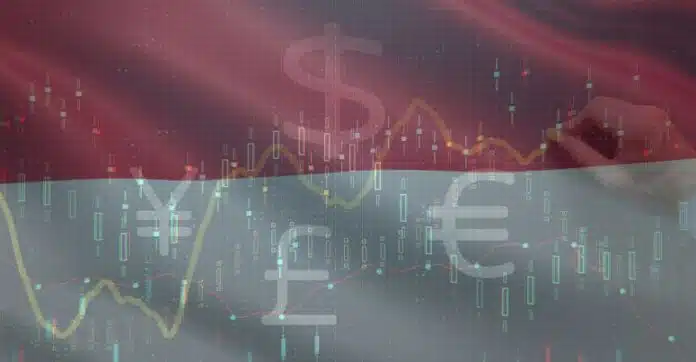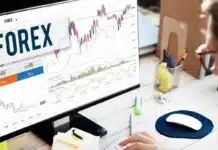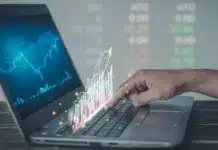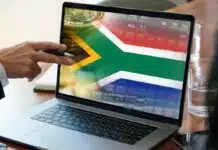
Forex or foreign exchange involves converting one currency to another. Forex trading is buying and selling coins from around the world. The forex market is the world’s largest financial market which is highly complex and speculative. Currencies are traded in pairs, meaning one currency is bought, and the other is sold.
The forex market in Indonesia is expanding at an exponential rate which has made many experts think that Indonesia is one of the leading forex markets in the world. The economy and the government greatly rely on forex trading for a considerable portion of their funding. With the best forex brokers, Indonesia enjoys an ideal forex trading environment as the market works with floating exchange rates combined with the free market economy. Moreover, the regulated and licensed foreign exchange brokers in Indonesia are monitored and regulated by the Bank of Indonesia, making it safer for Indonesian traders to participate in trading profitably.
Geopolitics involves the study of international relations and foreign policies, considering economics, demographics, and geographical factors which potentially impact currency prices. Geopolitical risks are real, and traders who want to earn from the currency market must consider this with weight.
Keeping that in mind, let us delve deep into different geopolitical risks affecting forex trading and explore everything there is to know about it.
Geopolitical Risks Affecting Forex Trading in Indonesia
Political Risks
First, geopolitical risks include political factors affecting Indonesia’s forex trading market. This has different sides, including political unrest, threats against countries, regime changes, and warfare. In a broad sense, most of these political factors that affect the forex market are mostly related to warfare, regime changes, corruption, government stability, and election cycles. This makes total sense considering that wars enormously impact an economy, even if they are not perfectly correlated.
Looking at geopolitical events in different countries, warfare is not only the top event but also the most serious of all the events mentioned above. For instance, the Russian-Ukraine conflict has had a direct and indirect impact on different parts of the world, creating havoc in several markets, including oil which has drastically affected the forex market in Indonesia. Another example of great significance is an unexpected government election. Whether from corruption scandals, non-confidence votes, or other circumstances, unplanned elections in any country can bring havoc to a particular currency.
For instance, upheaval among Indonesian citizens may result in work stoppages or protests, causing uncertainty in the country and increasing political instability. This powerfully outweighs all positive outcomes, and currencies usually suffer losses.
Economic Risks
Every economy is profoundly interconnected, and economic events in one part of the world can ripple out to other economies. Financial risks such as inflation, trade policies, and interest rates are vital in geopolitics. Currency prices are highly volatile, and resource supply disruptions may significantly impact the Indonesian economy. History has proven that lowering interest rates inevitably decreases the value of a domestic currency.
Added to this, there is a considerable probability of uncertainty surrounding various economic events or future economic expectations that decide the health of the forex trading market in a country. Pre-scheduled economic factors are generally less risky as they are already known to the traders in the market in advance. However, in case of uncertainty, there may be high volatility in the market, causing havoc to Indonesian traders causing instability in the forex market.
Social Risks
Many societal risks can significantly impact forex trading, including terrorism, public health crises, civil unrest, and safety risks. National security risks like civil unrest and terrorism significantly impact forex trading, as seen after the 9/11 attacks in the US, which caused substantial changes in the multiple currencies (US dollars) that affected the global forex market, including Indonesia.
Environmental Risks
The fallout from environmental factors such as climate change and natural disasters can be catastrophic for any economy. Tornadoes, hurricanes, floods, earthquakes, and tornadoes harm the country’s citizens, infrastructure, and morale. In addition, disasters also break a nation’s currency, affecting forex trade. Damage to significant factories or companies and loss of life, coupled with the uncertainty of natural disasters, is terrible news for the currency market. Infrastructural damages are also a primary concern since it is the backbone of an economy that can severely limit the country’s economic growth.
Furthermore, additional costs are incurred in cleaning up and rebuilding after a natural disaster, taking away private and government spending that could have been employed towards economically practical purposes instead of using it to patch up the damages. The probable fall in consumer spending can also be seen due to environmental risks, which lead to a loss of consumer confidence, significantly affecting the forex market. Ecological risks, like natural disasters, certainly negatively impact a nation’s currency market.
Strategies for Managing Geopolitical Risks in Forex Trading
Risk Management
Forex risk management allows traders to implement measures and rules to ensure all adverse effects of geopolitical risks are manageable. An effective risk management strategy requires well-laid-out plans from the outset, including portfolio diversification, setting stops and limits, building a good trading plan, keeping an eye on daily news and events, managing human emotions, and setting a risk-reward ratio. With a proper risk management strategy, traders have better control over their profits and losses, irrespective of geopolitical risks taking place nationally or internationally. Traders can also use various risk management tools to get themselves geared up for successful and profitable forex trades.
Fundamental analysis
Fundamental analysis can be used to evaluate forex markets using multiple data sources to find the fair value of a currency. It builds up an overall picture of the strengths and weaknesses of a currency and an economy and analyzes geopolitical risks and factors by examining real-life data. It substantially affects currency prices, such as political, economic, social, environmental, and cultural factors. The best forex brokers, Indonesia, and fundamental traders do not simply look at data randomly. They assess the currency’s fair value to check whether they are currently overpriced or underpriced.
Fundamental analysis considers geopolitical factors like central bank announcements, economic data, politics, inflation, natural disasters, and seasonality. With the help of primary research, traders can anticipate the possible geopolitical impacts to make informed and profitable trading decisions.
Technical Analysis
The best forex brokers in Indonesia can also use technical analysis to identify trade signals and trends in the forex market, even with possible economic and geopolitical risks. With the help of technical analysis, traders can concentrate solely on currency prices and predict future movements in the forex market while using trends and patterns identified from historical statistics and price types.
Technical analysis is all about understanding the market demand and supply with the expectation that previous market trends and practices will be repeated and focus on the currency prices, disregarding all other factors as unquantifiable information. There are various technical tools to explore patterns and trends in the past, which signal the market’s mood and traders’ sentiment.
Expert Insights
Expert Advisor is a software that helps traders make forex trades. The programming software tells when to initiate and execute forex trades using their trading strategies. Even during geopolitical chaos and disruptions, traders can use these tools to place trades automatically. For traders prone to trade driven by their emotions and sentiments, Expert Advisors tools can remove that factor and drive additional profits by responding to free trade signals. They can also take the help of expert quotes and insights from professional traders on their trade experiences in managing geopolitical risks in Indonesia.
Conclusion
Geopolitics may not be suitable for short-term traders. Sometimes, the impacts caused by geopolitical factors are so substantial that traders of all strides need to consider these risks at some point, as the trends and patterns produced may override their trading strategies that would otherwise prevail in a stable forex market.
Currencies have always been the weapon of choice for conflicts and trade wars, especially in the modern forex market. The US dollar is generally considered the essential haven. Since it is the de facto reserve currency, most trading in the forex world is priced in US dollars. The Swiss franc, the European euro, and the Japanese yen are safe havens in forex trading and may benefit or suffer from geopolitical risks and uncertainties.
Various geopolitical events can impact currencies, from major economic policy announcements and general elections to natural disasters, wars, and rising tensions with other countries. The interconnectedness of forex markets and the interlocking supply chains worldwide means forex brokers and traders must consistently think of geopolitical risks more than ever before. More forex trading brokerage companies seek ways to mitigate these risks by operating with currency experts and specialists who can provide valuable strategies like hedging and forward contracts.


